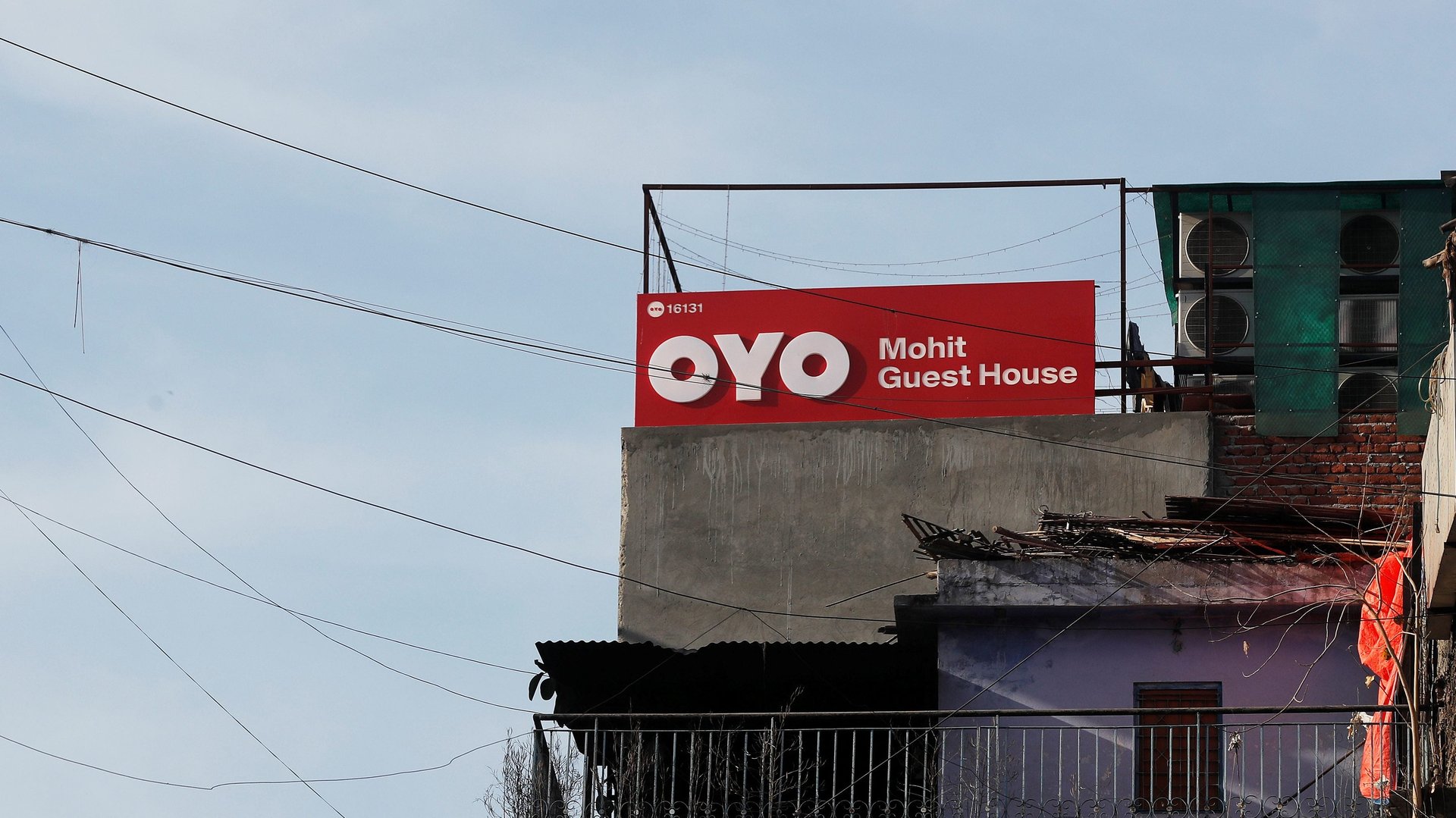What working at a six-year-old startup with a 25-year-old founder is like for a man in his 40s
It’s been a little over eight months since Aditya Ghosh joined OYO as its India CEO.


It’s been a little over eight months since Aditya Ghosh joined OYO as its India CEO.
Before this the 43-year-old had helped build India’s largest airline IndiGo from the ground up. He chose the startup gig reportedly after turning down a job at Tata Sons that involved helping plan the group’s acquisition of Jet Airways.
Since Ghosh’s stint at OYO began, the unicorn has dedicated Rs1,400 crore ($197 million) to its India and south Asia businesses. During this time, it has also set up 100 properties across 25 cities and towns in the UK, besides planning to expand to Saudi Arabia and Vietnam. The company is now present in over 800 cities across 18 countries, backed by marquee investors like Japan’s Softbank.
The six-year-old brand, now the world’s third-largest hotel chain, will become the world’s largest by 2023, believes its 25-year-old founder Ritesh Agarwal.
“Like in any journey, as the company evolves, as you stretch into different geographies and different roles, the centre (India business) needs to become even more stable,” Ghosh said.
Besides, the company nurtures dreams beyond hospitality. Last month, it acquired co-working startup Innov8. Last August, it had acquired Gurugram-based wedding marketplace Weddingz.in.
Quartz chatted with Ghosh about his time at the young, booming startup. Below are some edited excerpts from the conversation.
How has your time at OYO been so far?
It’s been a phenomenally exciting journey for me in several ways.
One is the size of the opportunity we’re chasing. Being part of the team writing this story, there’s a fighting chance we’ll become the first truly global brand out of India. For the very first time, you see an (Indian) brand on the street corner in hundreds of cities around the world.
Next is just the sheer talent of the people I get to work with. I know it sounds like a cool thing to say but I mean it in all seriousness. Every day, I’m learning something new, that I had no idea about even after working for 20 years. And I hope I’m in that fortunate position for many years to come.
Most CEOs and business leaders, after a while, may not have that opportunity where they go back home at night and say, “Today, I learned something new.” So I’m super excited. Does that mean I’m sleeping less? Yes, I think so. But all for the right reasons.
You moved from IndiGo, a big publicly-listed company, to a startup. What are the similarities and differences?
Ritesh and I often talk about this. IndiGo was also (working) out of one room when I got involved. The similarity (with OYO) is that you’re addressing a market with supply constraints. We’re taking a product which is, by and large, expensive, and where customers are expecting consistent quality.
By building a business differently, you’re able to provide that product at a fundamentally lower price, thereby expanding the market.
What’s different is that, in the hotels business, a consumer’s consumption pattern changes, depending on the reason for his travel and the people he’s travelling with. For example, from Mumbai to Delhi, if you’re going alone on a business trip, you’ll use a certain kind of hotel. If you’re going alone but on holiday, you’ll use a different hotel. So these are some of the many varying shades and complexities I’m learning all the time. Sometimes, it feels like we’re drinking out of a hosepipe but all in all, it’s very exciting.
What is it like having a 25-year-old leader?
This is a particularly interesting question for me because I was the 33-year-old at one time where I had direct reports who had been in the business longer than I was born. Now the roles have reversed. Ritesh is gifted with not just an audacity to dream but comes with great ability to chase that dream and drive people to pursue excellence. I really do enjoy working with him. Frankly, it doesn’t occur to us that he’s 25. Just as I hope he’s not constantly thinking “Aditya’s almost double my age.”
With OYO expanding aggressively into different geographies and sectors, where does its India business stand?
There’s this line that I often borrow from the late yoga guru BKS Iyengar who said, “Find your centre and then stretch.” I think it’s the responsibility of the India team to be that centre around which we can grow and evolve and acquire new capabilities.
How does having a global leadership team and overseas investors like Softbank help?
I’m acutely aware that I owe a responsibility to all the investors. I used to run a publicly-listed company where I felt I had the responsibility of thousands of investors and I don’t feel any different here. I feel that equal pressure or exhilaration—whatever you want to call it—towards not just one investor, but the whole ecosystem.
Some of the many multinational colleagues we have at OYO now, you know, leadership members from China, the Netherlands, the US, the UK, Malaysia to Indonesia, give the opportunity for people like me to constantly see what are the different cultural aspects they bring, how they think of the same problem and try to solve for it differently, and so on. It’s a very rich environment both from the board and the investor world and also colleagues.